Ableism & Democracy: The Road We’ve Traveled and the Future We’re Building

Ableism & Democracy: The Road We’ve Traveled and the Future We’re Building
Join us for a live webinar
This launch event kicks off the Ableism and Democracy series by recognizing National Disability Employment Awareness Month (NDEAM) and by honoring the history and power of the disability rights movement, especially the impact of Black people with disabilities.
Black disabled communities know the price of democracy because we’ve been paying it for generations. From the labor of our ancestors who built this country while being denied its promises, to leaders like Brad Lomax and Fannie Lou Hamer who linked civil rights to economic justice, our history makes clear that the fight for democracy has always been a fight for fair work, dignity, and survival.
Tuesday, October 28, 2025
10:00AM - 11:30AM Pacific Time / 1:00PM - 2:30PM Eastern Time
About the webinar:
Today, the struggle continues: Black unemployment is rising, nearly 300,000 Black women have been pushed out of the labor force this year, and federal job cuts are dismantling hard-won economic footholds. These aren’t isolated numbers — they are part of a long story of racism and ableism deciding who gets access to stability and power. In this session, we’ll honor the lessons of our past, break down the urgent economic challenges facing Black disabled communities today, and push forward a vision for a democracy that invests in us. This is not just analysis — it’s a call to action to build the future our ancestors dreamed of and our people deserve.
This panel asks the hard questions:
- What does democracy mean if Black disabled people are locked out of stable jobs, safe workplaces, and economic mobility?
- What does freedom look like when public policy erases the very workers who have held up our communities for generations?
- And most importantly, how do we reclaim our power, build solidarity, and demand a democracy that invests in us rather than abandons us?
Through unapologetic dialogue, we will examine the intersections of race, disability, labor, and democracy — not as abstract issues, but as lived realities shaping whether our communities can thrive. Together, we will not just analyze the barriers — we will imagine and claim new possibilities for economic justice that honor our resilience and leadership. This is not a panel about despair; it’s about strategy, power, and our collective refusal to be left behind.
Brad Lomax–Fannie Lou Hamer Disabled Leadership Committee — a collaborative group of predominately Black and Disabled leaders representing the National Disability Rights Network, Disability Rights California, and the NAMED Advocates.
Moderator:
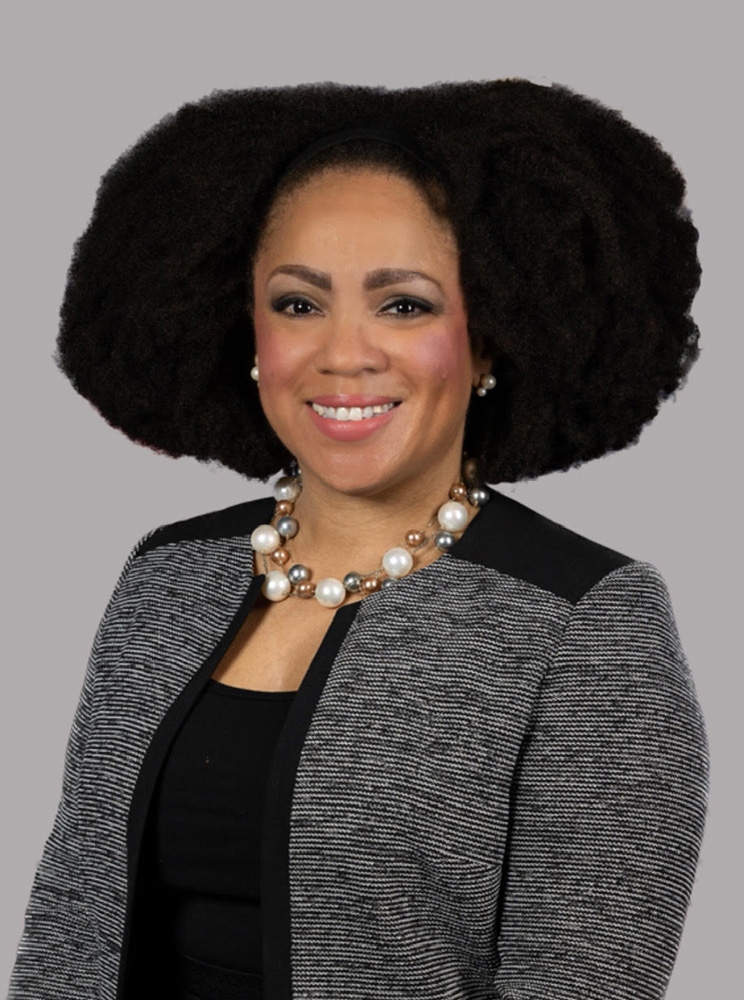
Taryn Mackenzie Williams is a national expert on disability policy. She is currently a Senior Fellow for Disability at the National Partnership for Women & Families, where she offers expertise and thought leadership on policies and practices that shape the economic security of people with disabilities. Prior to her role at the Partnership, Williams served as Assistant Secretary of Labor for Disability Employment Policy, leading the Office of Disability Employment Policy (ODEP). In this role, she worked with employers and government leaders at all levels to advance evidence-based policies that enhance employment opportunities and outcomes for people with disabilities.
Previously, Williams was managing director of the Poverty to Prosperity Program at American Progress, where she focused on a wide range of anti-poverty policies. Before that, she worked in a number of roles including as ODEP’s Chief of Staff and Director of Youth Policy, as associate director for public engagement and liaison to the disability community at the White House during the Obama administration, and policy adviser for the U.S. Senate Committee on Health, Education, Labor, and Pensions under the leadership of Senator Tom Harkin.
She holds degrees from Brown University and Harvard University and lives in Washington, D.C., with her husband, Reggie.
Speakers:
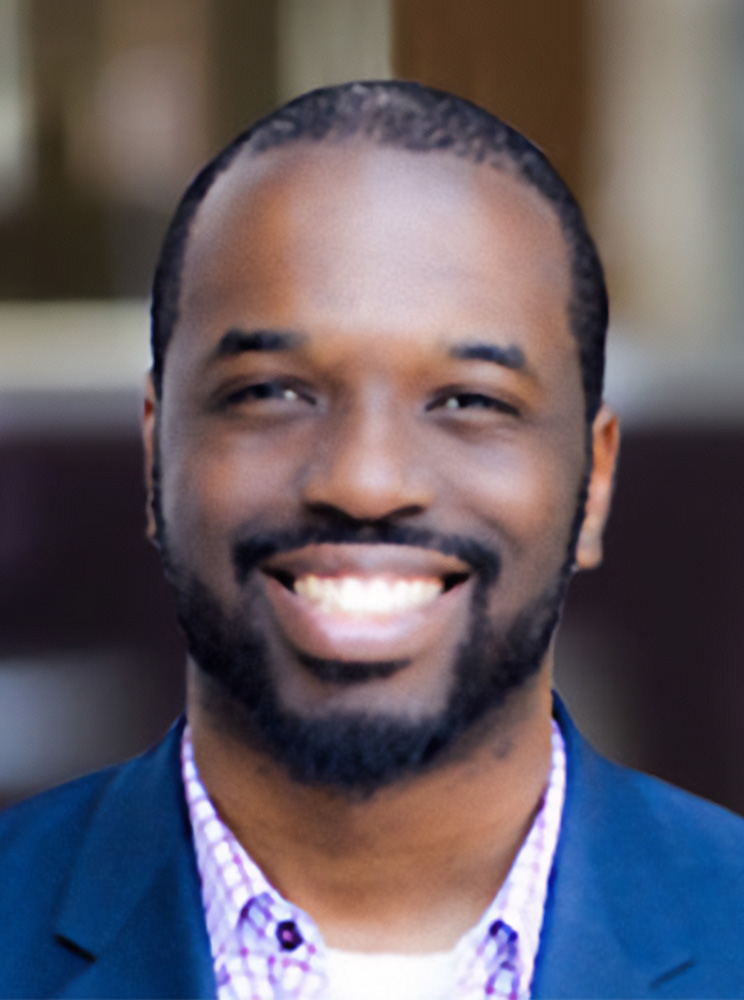
Eric Harris is DRC's Associate Executive Director of External Affairs with an extensive career working closely with disability leaders, community members, and elected officials throughout the country to progress change for the disability community.
Harris brings significant local, state and federal policy experience, having worked for Congresswoman Barbara Lee, the Democratic National Committee and the California and Hawaii State NAACP.
Mr. Harris has led discussions on disability pride, inclusion and access on platforms throughout the country. He has spoken at Harvard Law School, the University of California at Berkeley School of Medicine and at the White House.
Harris started his time at DRC in 2019 working in the legislation and strategic partnerships and community engagement units. He served on the State Independent Living Council as a Governor Newsom appointee and as a board member for the Resources for Independent Living in Sacramento. He grew up in Sacramento, California and was an elite wheelchair basketball player.
“Creating public policy that improves the lives of disabled people has been my life’s mission. I look forward to working closely with intersectional disability leaders throughout the state to improve the lives of all people with disabilities.”

Keris Jän Myrick is a leading mental health advocate and executive, known for her innovative and inclusive approach to mental health reform and the public disclosure of her personal story (as featured in the New York Times series: Lives Restored). She has over 15 years of experience in mental health services innovations, transformation, and peer workforce development.
Keris is known for her collaborative style and innovative “whole person” approach to mental health. She is the Vice President of Partnerships at Inseparable, the policy liaison for The National Association of Peer Supporters (N.A.P.S.) and on the Mental Health of America board of directors. She is the developer and host of the podcast “Unapologetically Black Unicorns” focusing on mental health, race equity and lived experience.
Keris was formerly the Chief of Peer and Allied Health Professions for the Los Angeles County Department of Mental Health and has served as the Director of the Office of Consumer Affairs for the Center for Mental Health Services (CMHS) of the United States Health and Human Services’ Substance Abuse and Mental Health Services Administration (SAMHSA) and was the Board President of the National Alliance on Mental Illness (NAMI). She is a Co-Editor of the Journal of Psychiatric Services “Lived Experience and Leadership” column and has authored numerous peer reviewed journal articles and book chapters. Keris has a MS in organizational psychology from the California School of Professional Psychology of Alliant International University and an MBA from Case Western University’s Weatherhead School of Management.
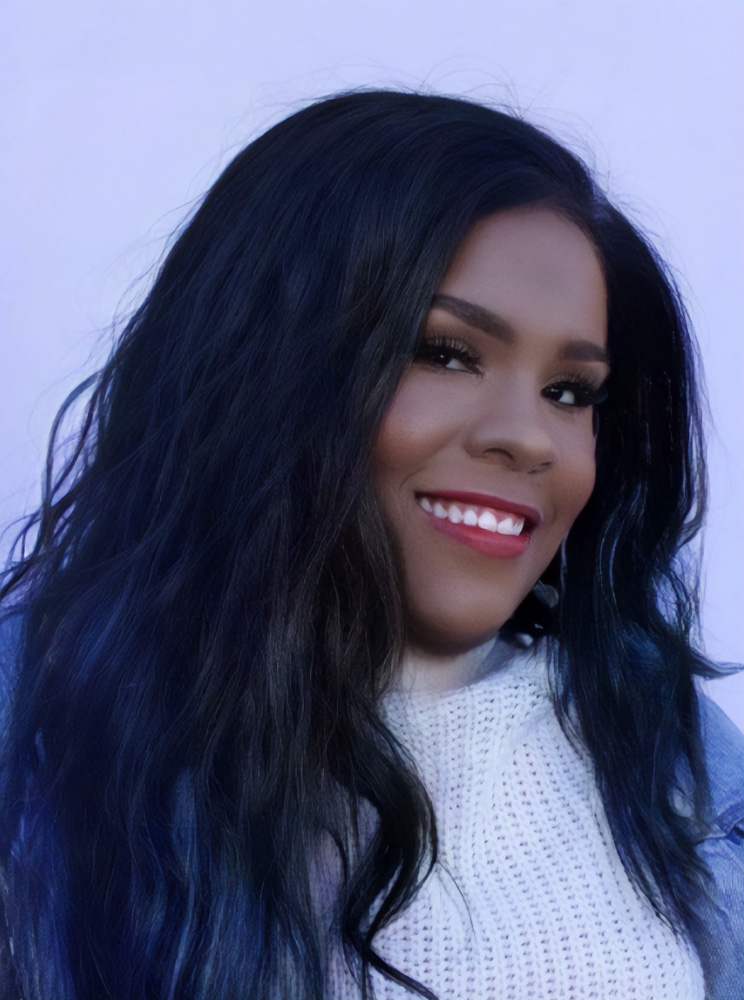
Tameka Citchen-Spruce
Tameka Citchen-Spruce is a disability justice advocate, independent media producer, and national speaker who uses storytelling to amplify marginalized voices and challenge systems of exclusion. Paralyzed from the mid-chest down after a car accident at six months old, Tameka grew up navigating life as a Black disabled young woman in a world not built for her—but she refused to be defined by barriers.
She studied broadcast television and journalism at Oakland University and has spent over 15 years advancing disability advocacy across media, policy, and community spaces. Her work includes producing My Girl Story, Justifiable Homicide, and The Nightmare, as well as contributing to the award-winning PBS American Masters’ The Renegades: Blind Tom Wiggins and the digital series Divas in the City.
Through her company, Living Unapologetically Media, Tameka merges activism and digital storytelling to advocate, educate, and create media that unapologetically centers Black, Brown, and disabled women and girls.
Opening and Closing Remarks By:
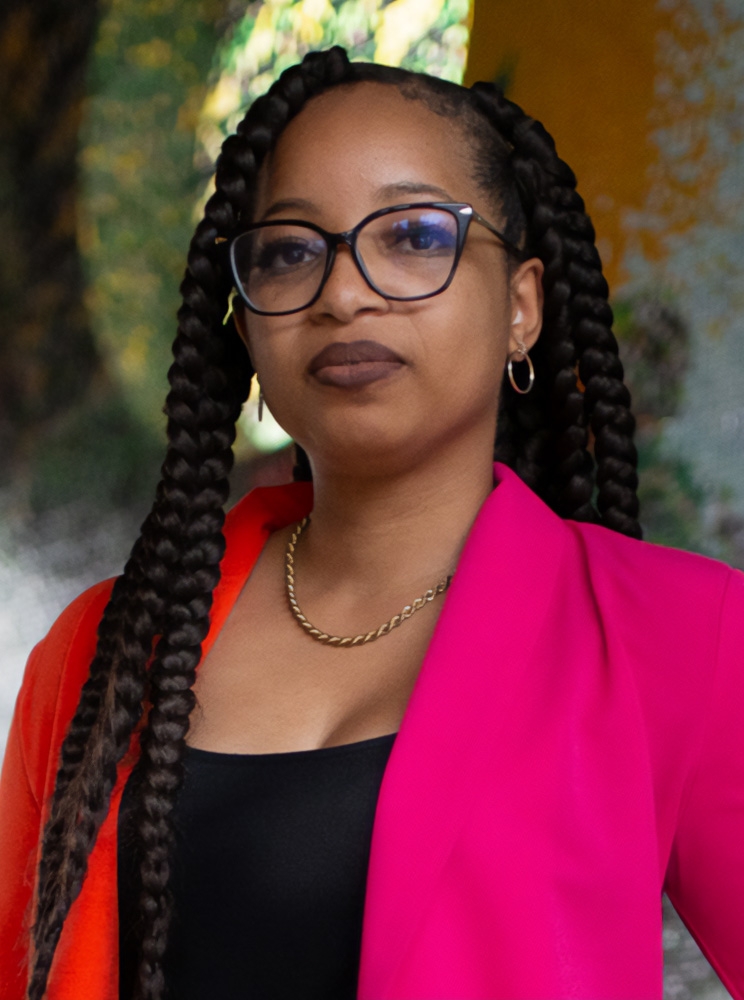
Keri Gray is a nationally recognized disability advocate, facilitator, and cancer survivor dedicated to advancing racial and disability justice. She is the founder and Executive Director of the National Alliance of Melanin Disabled Advocates (the NAMED Advocates), an organization that is reshaping social justice movements’ approach to ableism and building cross-movement solidarity with disabled leaders of color.
Through Keri’s leadership, the NAMED Advocates has launched several groundbreaking initiatives, including: the Rethinking Language in Science project, which challenges how medical and scientific language frames disability and pushes for more community-rooted, inclusive narratives; the Our Presence is Our Power Leadership Conference, which centers BIPOC disabled leaders through discussions on workplace culture, policy, and innovation; and the historic Black Disabled Lives Matter protest in Washington, DC, which brought together over 100 people in front of the White House during the 2020 uprisings to demand justice and visibility for Black and Disabled lives.
Keri’s work has brought her into partnership with organizations across the country—from grassroots collectives to major institutions—where she supports communities in shifting culture, policy, and language toward greater equity. Keri’s work has garnered attention from major publications and media outlets such as Teen Vogue, the New York Times, People Magazine, Time Magazine, PBS NewsHour, Madamenoire, and the Diet Coke campaign #Unlabeled.
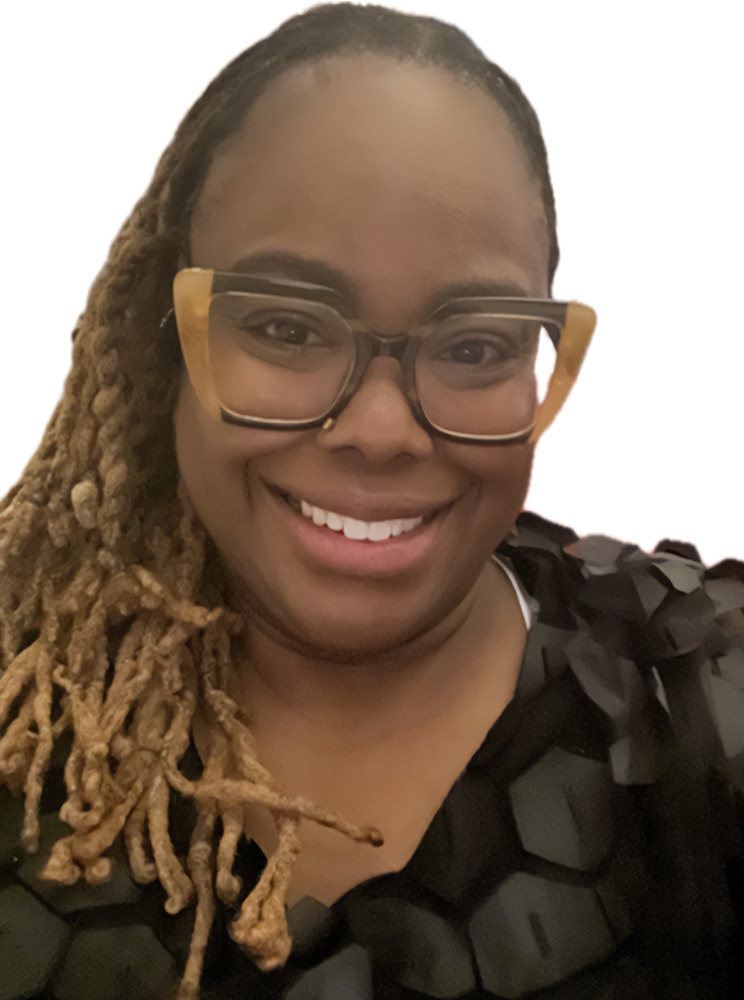
Ms. Monica Wiley was diagnosed with an incomplete spinal cord injury caused by a drunk driver that caused her family to plunge over a 150 ft bridge. Her entire family died, and she was the remaining survivor of the tragedy. Ms. Wiley was nine years old. Ms. Wiley was told that she would be paraplegic for the rest of her life. However, she beat the odds of the diagnosis and was able to begin rehabilitation to walk again. She currently walks with a cane. She is classified at Children Hospital of Richmond, Virginia as the Miracle Child.
Ms. Wiley has over 15 years of experience as a Disability Adviser and Organizational and Relationship Management in the public and private sector. She has worked for some notable leaders ranging from state government to federal organizations on protecting and advancing the rights of people with disabilities and other underrepresented communities. Ms. Wiley served as Field Organizer with President Obama's grassroots organization-Organizing for America in the Greater Richmond Area. She was the only organizer with a disability. Ms. Wiley was selected as the Virginia liaison on disability to the White House Disability Group under the Obama-Biden administration. Ms. Wiley was appointed by former Governor McAuliffe of Virginia as a Disability Advisor on Community Integration to the administration. She is the co-founder of the Disability Issues Caucus Constituency Organization for the Democratic Party of Virginia. In 2017, Ms. Wiley was asked to serve on the National Disability Council under the leadership of former Congressman Tony Coelho.
Ms. Wiley is currently employed at the National Disability Rights Network (NDRN) as the Voter Engagement Specialist. She also provides contractual services to the National League of Cities (NLC) as a DEIA/B consultant on communicating effectively about racial equity and systems change. Ms. Wiley received the 2011 Community Activism Award from Special Olympics; 2011 Tom Whipple Democratic Party of Virginia Service of The Year Award; and 2012 Top 40 under 40 Successful Leaders award by Style Weekly.
She also serves on the Board of Directors of United Spinal Association; and has served on the Maryland Statewide Independent Living Council board in Governor Moore’s administration. Ms. Wiley is also working on getting her proposed Election Law Curbside Voting Bill passed in the state of Maryland for the 2026 legislative session.










